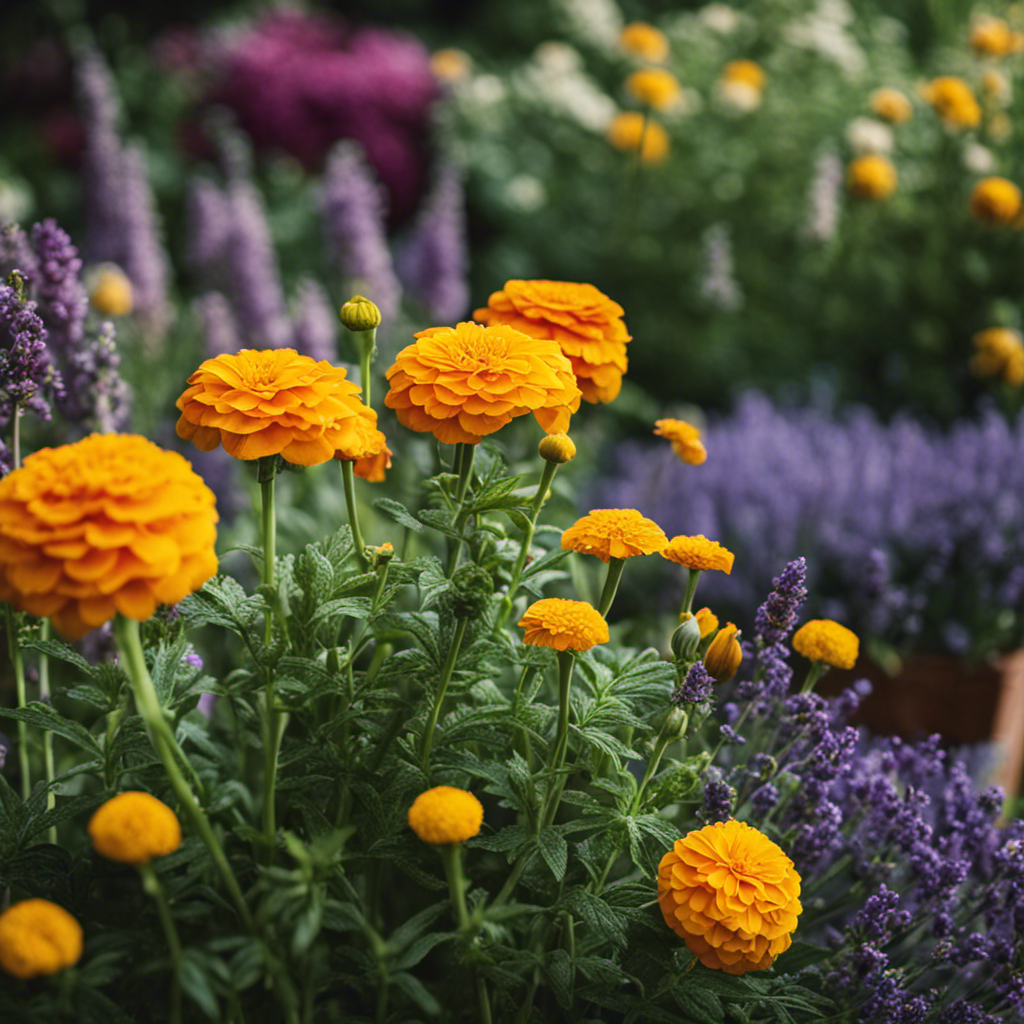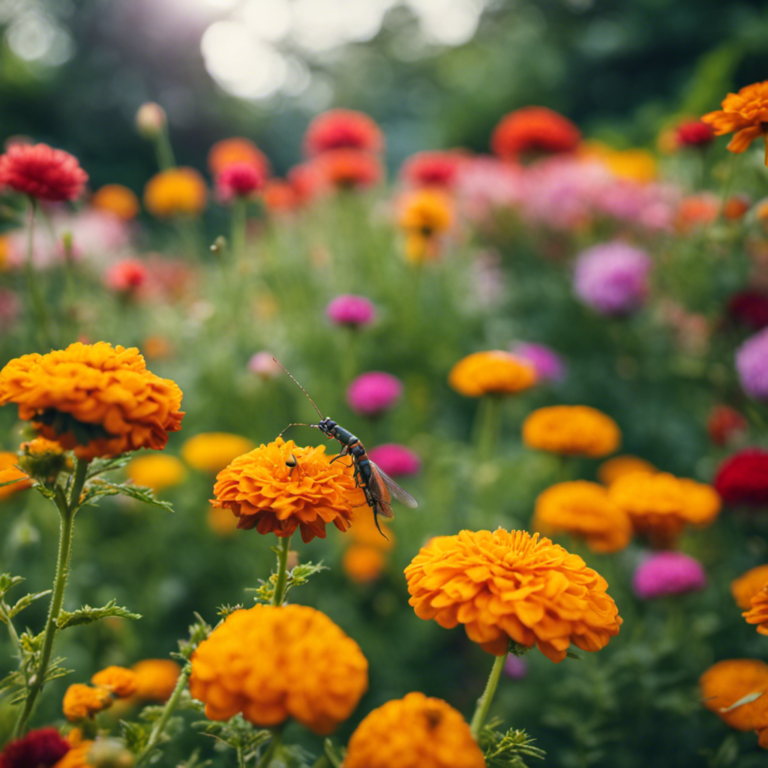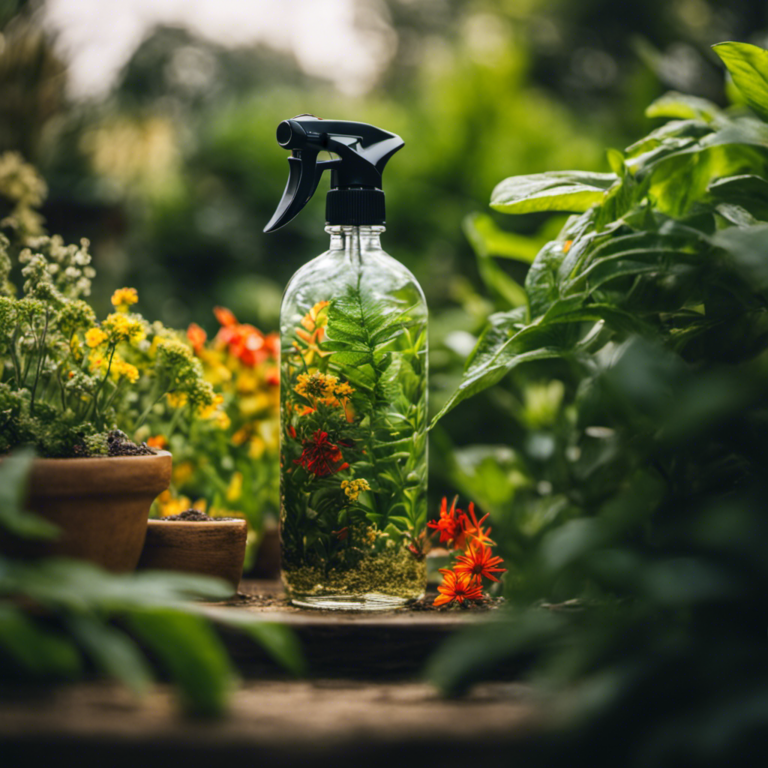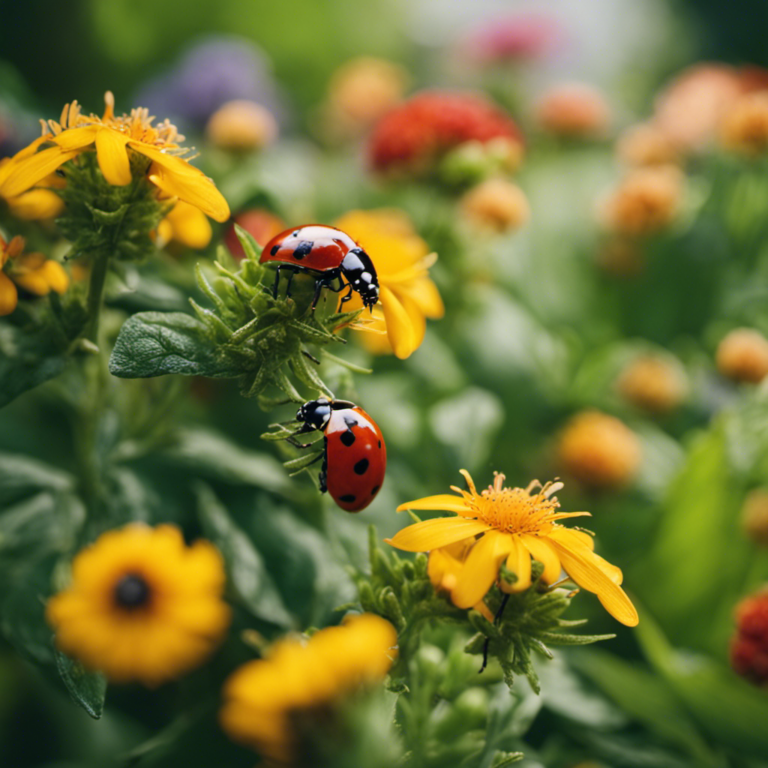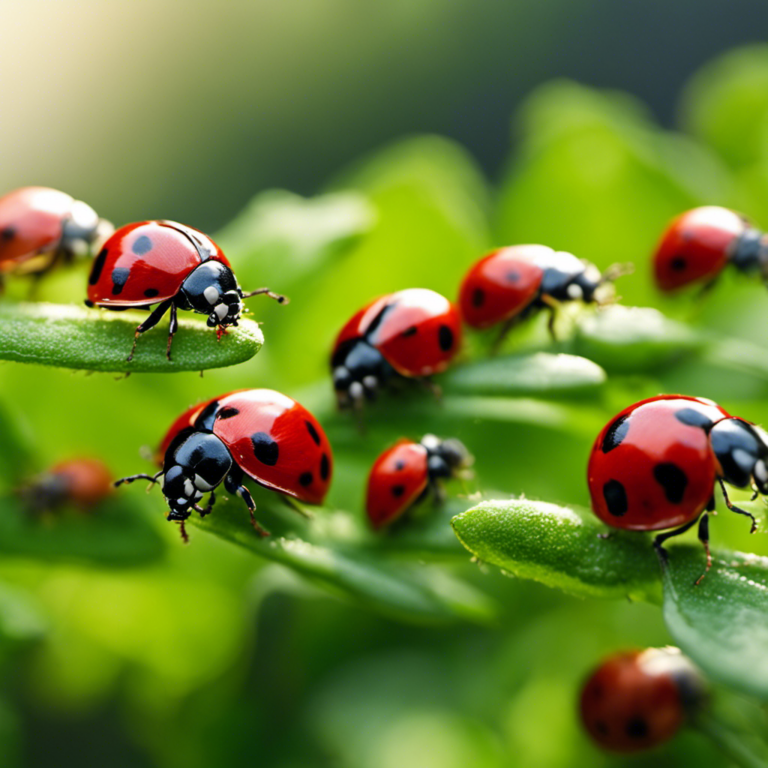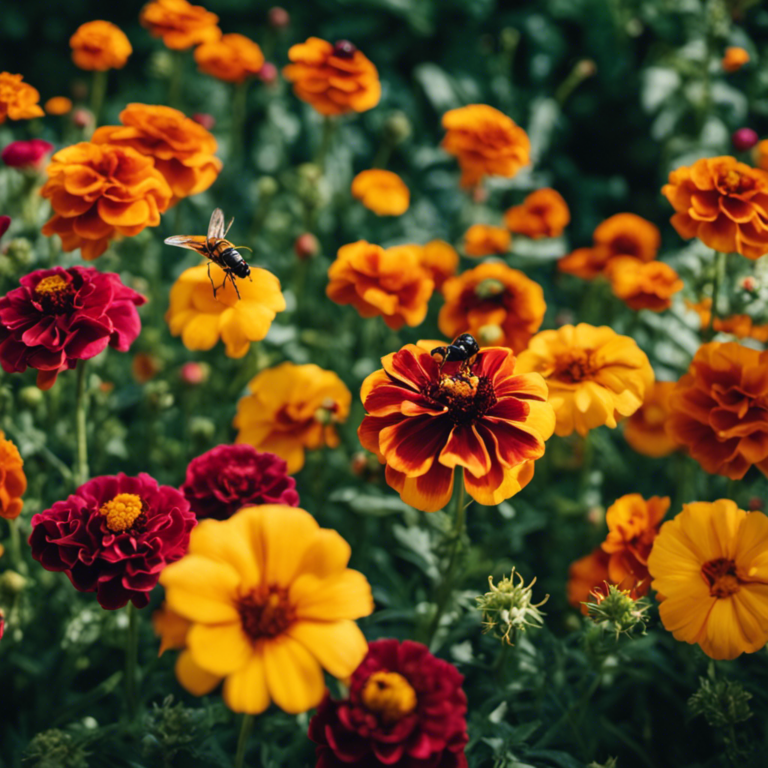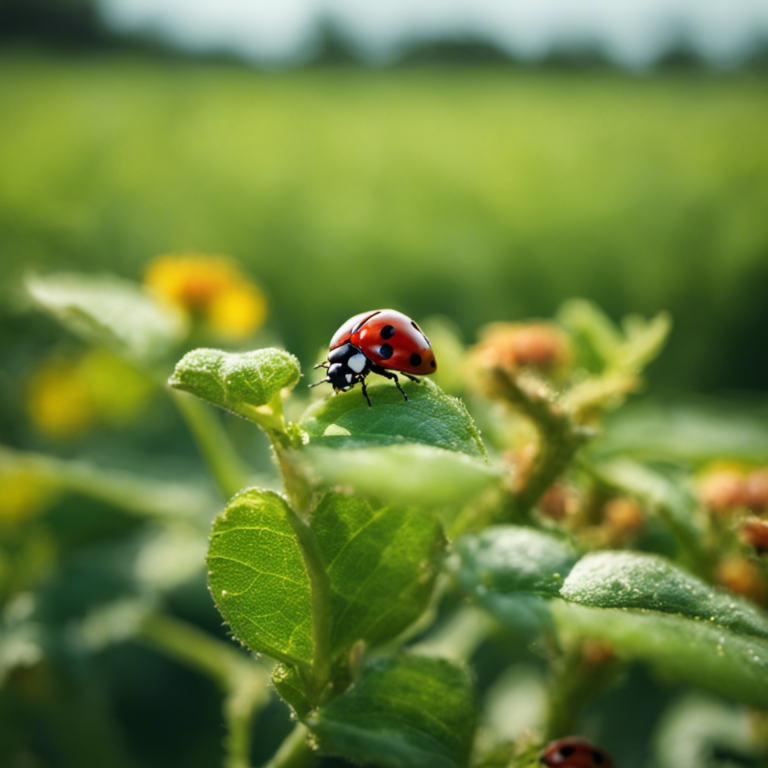Is your edible garden under attack from pesky pests, ruining all your hard work and spoiling your harvest? Don’t worry! There are safe and natural ways to keep those pests at bay.
Imagine a garden filled with thriving, healthy plants, untouched by the destructive presence of pests. In this article, we will explore effective techniques for protecting your edible garden.
These techniques include:
- Using essential oils
- Attracting beneficial insects
- Creating homemade sprays
- Practicing companion planting
- Setting up physical barriers
By incorporating these methods into your gardening routine, you can create a pest-free environment for your plants to flourish.
Get ready to reclaim your garden and enjoy a bountiful harvest!
Key Takeaways
Here are some safe and natural pest repellents that can effectively protect your edible garden. Methods such as using essential oils, beneficial insects, homemade sprays, companion planting, and physical barriers work well and are easy to implement. While chemical pesticides may seem easier, the benefits of using natural repellents outweigh any inconvenience. By choosing these safer alternatives, you not only protect your garden but also contribute to a healthier environment for yourself and future generations.
Essential Oils

Protecting your edible garden from pests can be accomplished effectively using essential oils. Not only do these oils have a pleasant scent, but they also possess natural insect-repellent properties that can keep unwanted bugs away. Certain essential oils, like peppermint, lavender, and eucalyptus, are known for repelling common garden pests such as aphids, ants, and mosquitoes.
In addition to their benefits for skincare, essential oils offer a safe and effective alternative to chemical pesticides in your garden. You can create homemade essential oil candles by mixing a few drops of your preferred oil with melted soy wax and pouring it into a jar with a wick. Strategically place these candles around your garden to deter pests and create a relaxing atmosphere.
Beneficial Insects
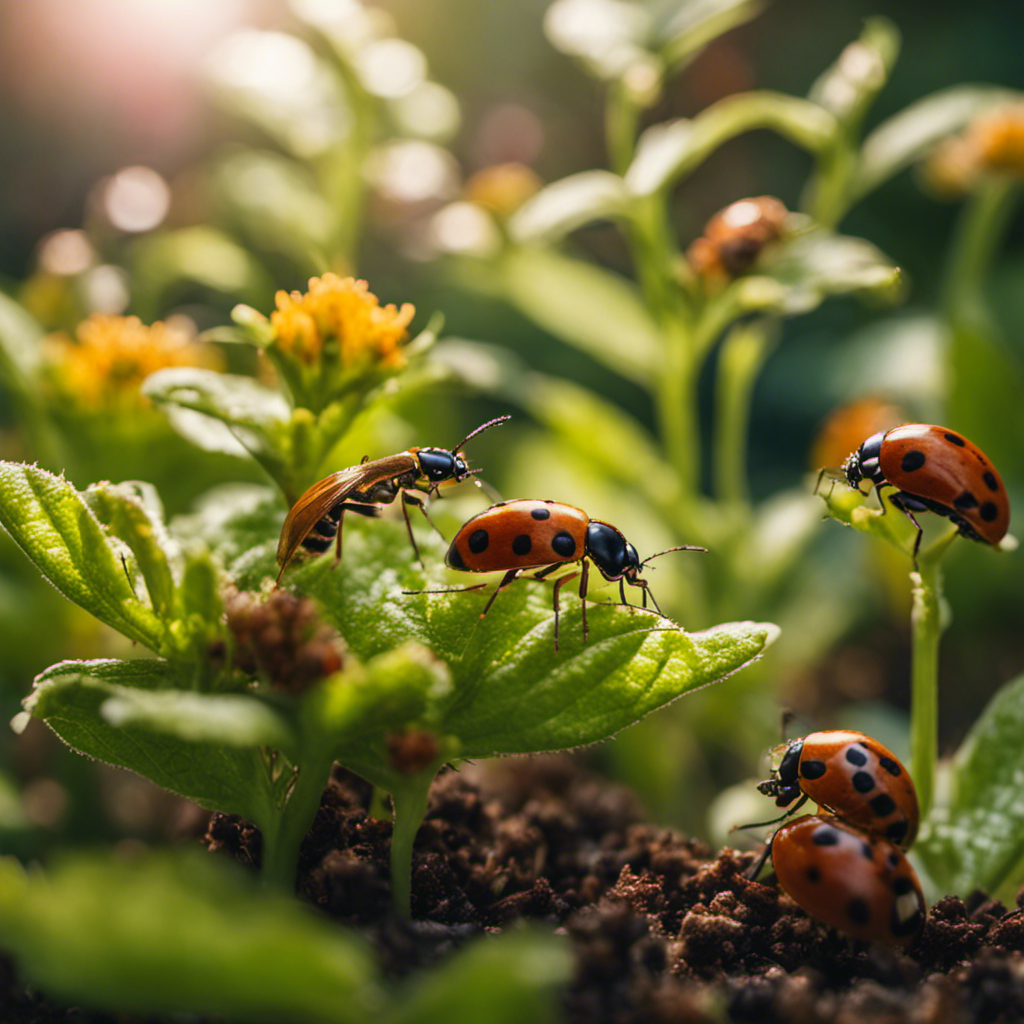
Protecting your edible garden from pests is essential, and one effective method is by utilizing beneficial insects. These small allies play a vital role in maintaining a healthy ecosystem in your garden. Here are five key points to consider:
-
Attracting pollinators: Bees and butterflies are crucial for pollinating flowers and ensuring fruit set in your edible plants. You can increase your harvest by creating a diverse and vibrant garden that attracts these pollinators.
-
Natural pest control: Beneficial insects act as natural predators, keeping pest populations in check. Ladybugs, lacewings, and parasitic wasps are examples of insects that feed on harmful pests like aphids and caterpillars.
-
Plant diversity: Incorporating a variety of plants in your garden attracts a wide range of beneficial insects. Different species of insects have specific preferences for nectar and pollen sources, so providing a diverse food supply encourages their presence.
-
Providing habitats: Beneficial insects need suitable habitats to thrive. Creating insect-friendly environments, such as small patches of wildflowers or leaving some areas of your garden undisturbed, can attract and support these helpful creatures.
-
Minimizing pesticide use: Chemical pesticides not only harm harmful pests but also beneficial insects. By using organic and natural pest control methods, you can protect the beneficial insects while effectively managing pest populations.
Homemade Sprays
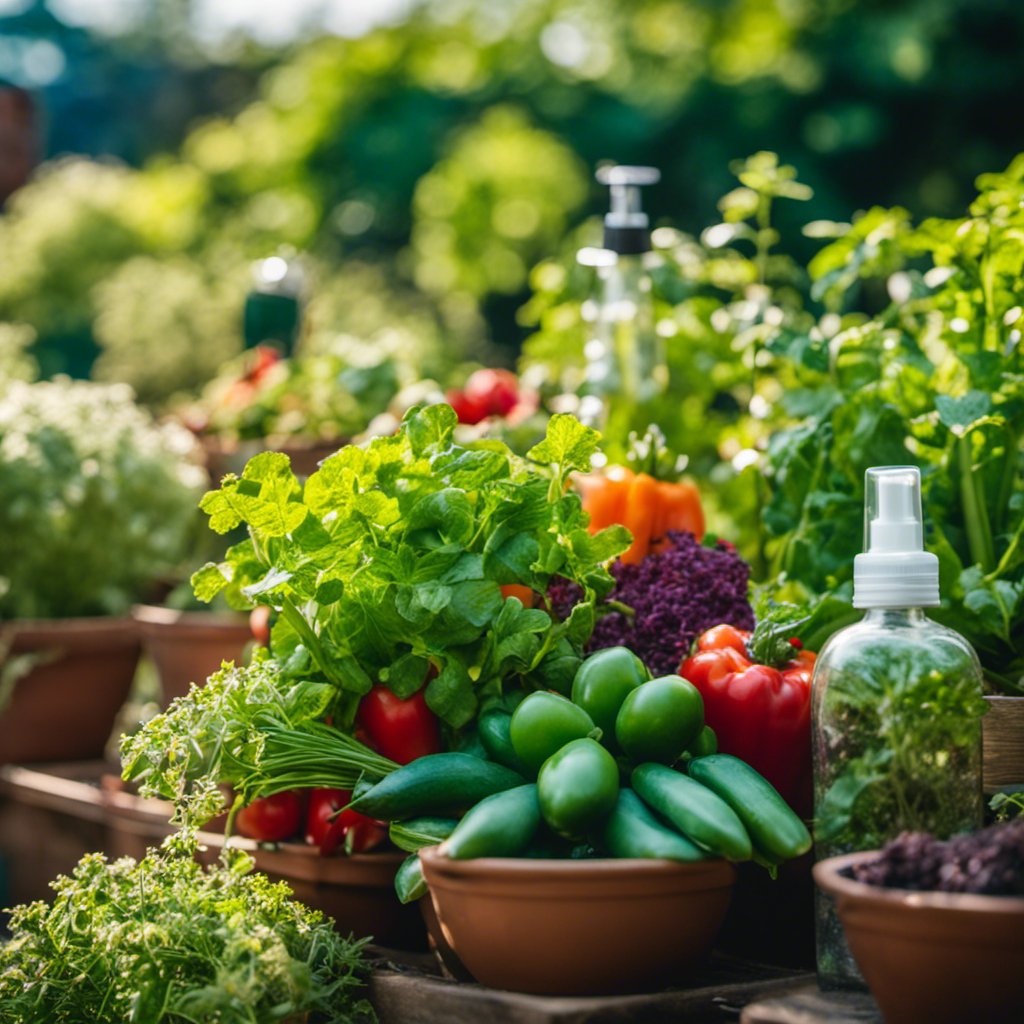
Protecting your edible garden from pests can be easily done with homemade sprays. These DIY pest repellent sprays aren’t only safe but also cost-effective, as they use natural ingredients.
One effective homemade spray is a mixture of water, dish soap, and garlic. Garlic naturally repels insects, making it effective against pests like aphids and caterpillars.
Another option is a spray made from neem oil, which is derived from the neem tree and acts as a natural insecticide. Neem oil can control a variety of garden pests, including aphids, beetles, and mites.
Additionally, a mixture of water, vinegar, and cayenne pepper can be used to repel insects like ants and aphids.
These homemade sprays are easy to make and provide effective protection for your edible garden.
Companion Planting
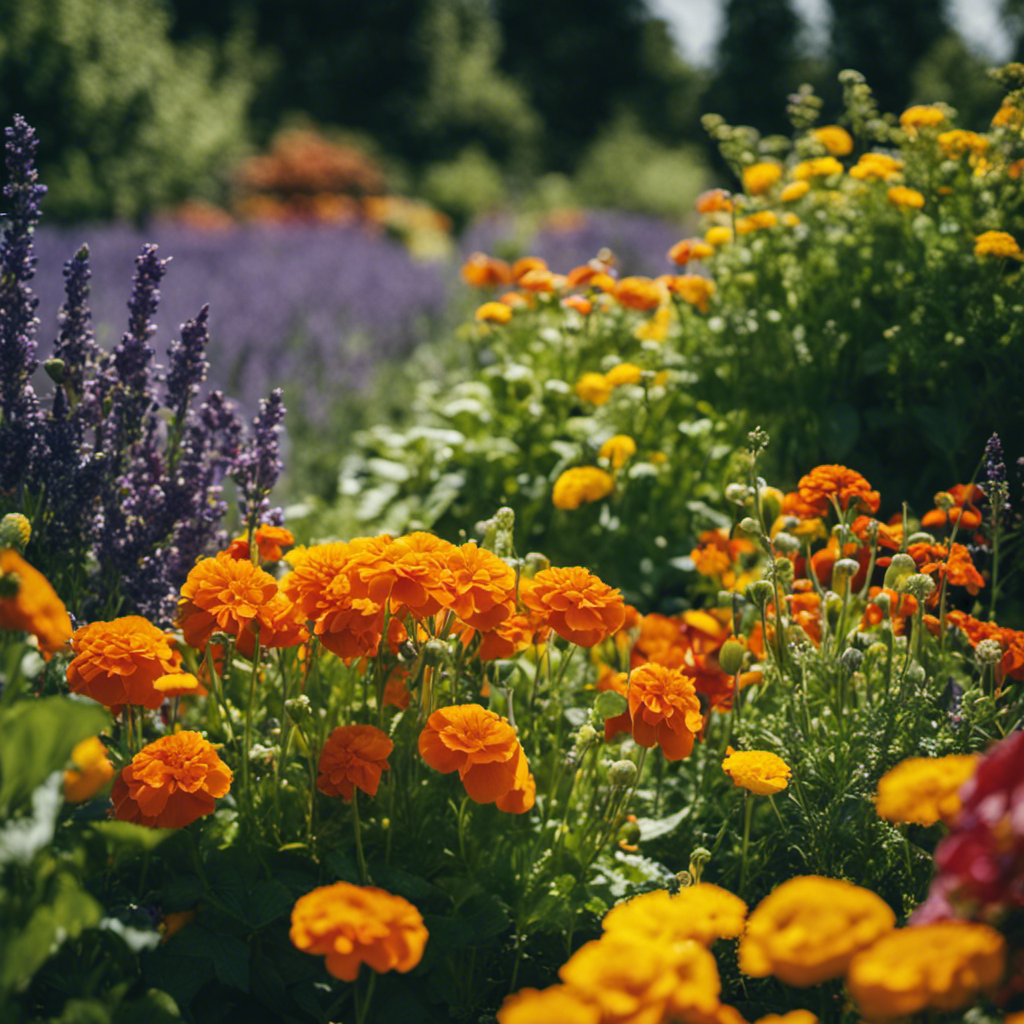
Improve the protection of your edible garden by using companion planting. Companion planting is a method where specific plants are grown together to benefit each other. By strategically placing certain plants next to each other, you can repel pests, enhance soil fertility, and increase overall garden productivity.
Here are five key benefits of companion planting:
-
Pest control: Certain plants, like marigolds and basil, naturally repel pests and protect your crops from infestation.
-
Increased pollination: Planting flowers alongside your vegetables attracts pollinators like bees and butterflies, leading to better fruit and vegetable production.
-
Improved soil health: Some plants, such as legumes, can enrich the soil by fixing nitrogen and providing essential nutrients for other plants.
-
Weed suppression: Dense planting of compatible crops can shade out weeds, reducing the need for manual weeding.
-
Space optimization: Companion planting maximizes garden space by utilizing vertical growing techniques or interplanting compatible crops.
Physical Barriers
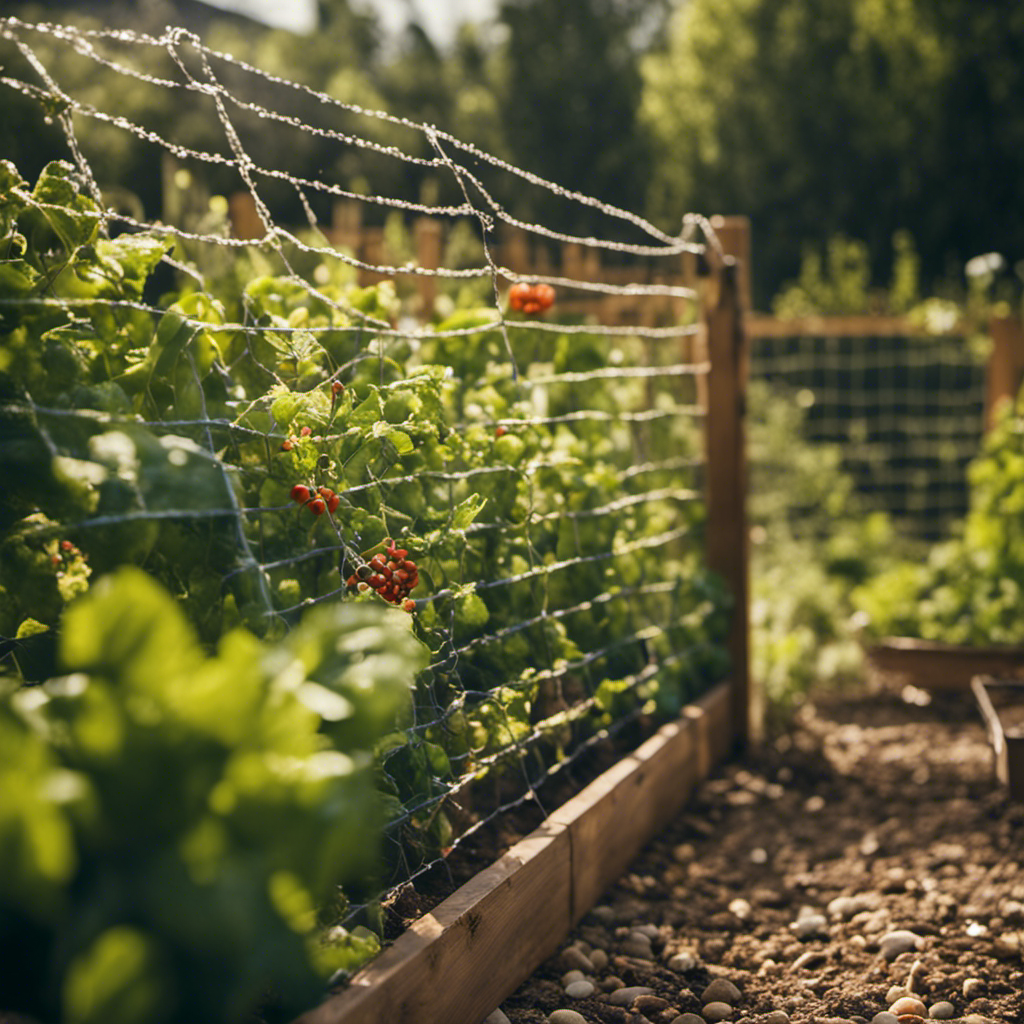
Protecting your edible garden from pests can be effectively done through the use of physical barriers. Netting options and natural fences serve as practical solutions to keep unwanted visitors out of your garden.
Netting options like bird netting or insect netting can be easily draped over plants, creating a barrier that prevents birds and insects from accessing them. These nets have small holes that allow sunlight and rain to reach the plants while effectively keeping pests at bay.
On the other hand, natural fences, such as hedges or fences made from bamboo or willow, act as physical barriers to deter larger animals like rabbits or deer. Planting these fences around the perimeter of your garden or individual beds can create a protective barrier.
Conclusion
Here is a variety of safe and natural pest repellents that can effectively protect your edible garden.
- Essential oils, beneficial insects, homemade sprays, companion planting, and physical barriers are all methods that work well and are easy to implement.
While some may argue that these methods require more effort and time compared to chemical pesticides, the benefits of using natural repellents outweigh any inconvenience.
By choosing these safer alternatives, you not only protect your garden but also contribute to a healthier environment for yourself and future generations.
